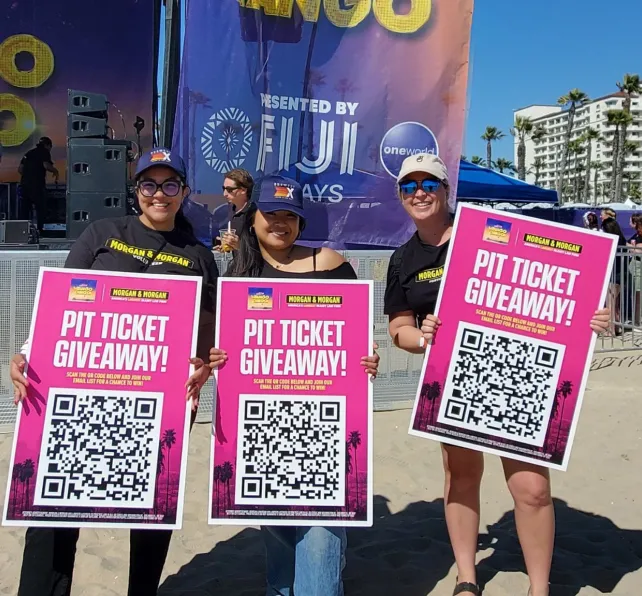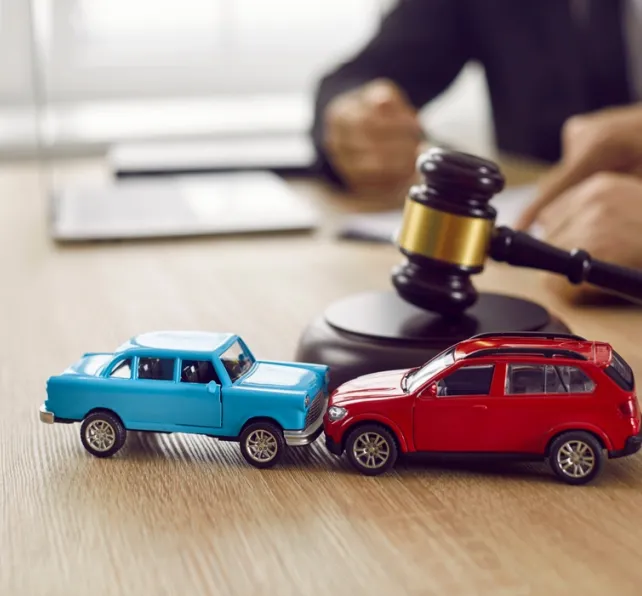Results may vary depending on your particular facts and legal circumstances. The attorney featured above is licensed in Florida. For a full list of attorneys in your state please visit our attorney page.
What You Need to Know About California Water Park Injury Law?
Fighting for every client with the power of America's Largest Injury Law Firm.
Results may vary depending on your particular facts and legal circumstances. The attorney featured above is licensed in Florida. For a full list of attorneys in your state please visit our attorney page.
California Personal Injury Lawyers
We’re proud to fight for our neighbors. Meet the attorneys from your community.
100,000+ Five Star Reviews
The reasons why clients trust Morgan & Morgan.
Based on select nationwide reviews.
Results may vary depending on your particular facts and legal circumstances.
Our Results
Results may vary depending on your particular facts and legal circumstances.
How It Works
Focus on your recovery. We'll take care of the rest.

Submit your free evaluation
Start your claim

Meet your legal team

We fight for more
Results may vary depending on your particular facts and legal circumstances. The attorneys shown in these photos may not be licensed in your state. To find an attorney licensed in your area, please visit our attorney page.
Local Care
Backed by America’s Largest Injury Law Firm.
$25 Billion
Recovered for clients
nationwide700,000+
Clients and families
served1,000+
Attorneys across
the country1
Click may change your life
The attorney featured above is licensed in Florida. For a full list of attorneys in your state please visit our attorney page.
Results may vary depending on your particular facts and legal circumstances.
In the Community
Discover the local Morgan & Morgan experience with news, events, and partnerships.
Learn More
Injured and not sure what to do next? We'll guide you through everything you need to know.
Get answers to commonly asked questions about our legal services and learn how we may assist you with your case.
How Much Is My Case Worth?
Every water park injury case is different. The value of your case will depend on the facts of the accident, the severity of your injuries, and the degree of fault of the responsible party. However, you could recover the following damages as well as others:
- The costs of medical treatment and future medical treatment
- Loss of income and future loss of income
- Emotional and physical pain and anguish
- Loss of enjoyment
- Out-of-pocket expenses
A personal injury lawyer can assess your damages and inform you of the approximate worth of your water park injury case.
When Is a Water Park Liable for My Damages?
An attorney can establish whether you could hold a water park to account for your injury and expenses. In some cases, injuries can occur due to our own carelessness or clumsiness. When this happens, individuals generally do not have legal recourse. However, a water park can be responsible, for example, when:
- The water park owner failed to maintain the premises adequately
- Water park slides and other equipment was defective or damaged
- Staff did not enforce height or weight restrictions for rides and slides
- There were not enough lifeguards present
- Lifeguards made an error or failed to assist in an emergency
- There were no warnings about potential hazards
- Pools and slides were dangerously overcrowded
If you or your child got hurt due to negligence of a water park’s employees, management, or owner, you could have legal recourse and recover compensation.
When Should I File a Water Park Injury Case in California?
When you intend to hold a water park to account for your injuries, there are two important points to consider. Firstly, according to the California Code of Civil Procedure § 335.1, you should file a personal injury lawsuit within two years of your accident and injury in California. Missing the deadline could leave you without legal recourse and unable to receive any compensation for your losses.
Secondly, if you suffered significant or catastrophic injuries, it is best to wait with filing suit until you reach full or maximum medical recovery, if possible. Filing a lawsuit immediately after the accident may not work to your advantage, as your doctor or attorney may not be able to estimate your future medical costs and income losses correctly.
Since determining the correct timing for a lawsuit can be tricky yet crucial for recovering an adequate settlement, consider speaking to one of our experienced personal injury attorneys who can figure out the best possible time for filing your lawsuit.
How Do I Pay a Water Park Injury Attorney?
If you suffered an injury due to another’s fault, you should not have to worry about having to pay attorney’s fees. Most personal injury lawyers work with a so-called “contingency fee arrangement,” which means that you do not have to pay attorney’s fees unless you win the case. However, you may still be responsible for miscellaneous court costs, such as the court filing fee, costs of transcriptions, and fees for expert witnesses.
At Morgan & Morgan, we are committed to helping injured individuals get their due from negligent companies or other entities so they can rebuild their lives after suffering a tragic injury. We believe everyone deserves justice, regardless of their financial situation. When we take your case, you do not have to pay anything unless and until we win.
Contact Us Now for Help and Advice
Morgan & Morgan understands the emotional, physical, and financial challenges that severely injured individuals have to face. Our determined personal injury attorneys are dedicated to helping victims and their families recover what they need and deserve. We can analyze the facts of your accident, determine all liable parties, and fight for a fair settlement on your behalf.
If a profit-driven water park owner, negligent employee, or other party caused your accident, take action today. Contact us now to find out if you have a case.















































